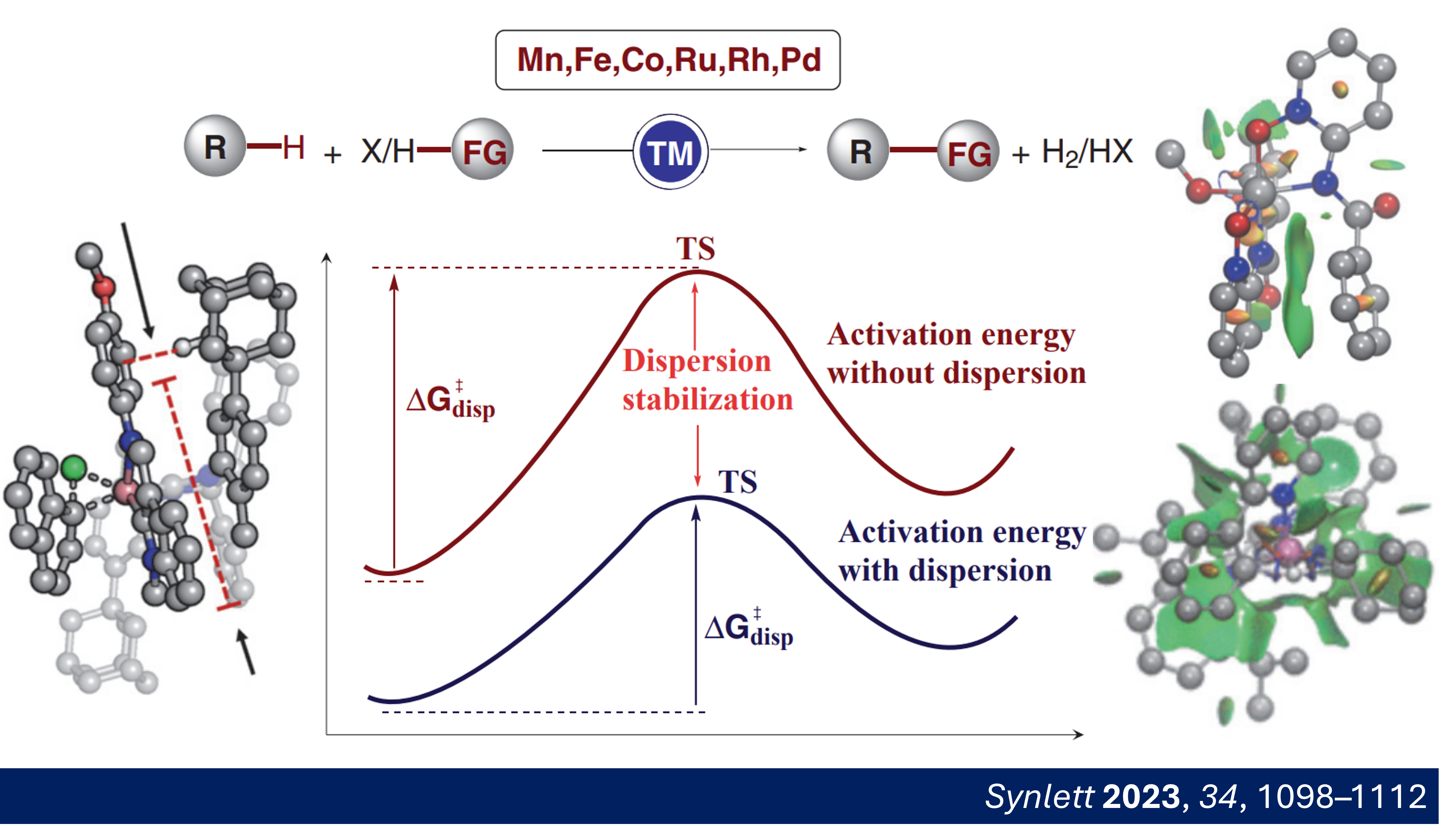Computational Studies

A detailed understanding of reaction mechanisms is necessary to gain insight into the mode of action of a catalytic system. To this end, our research group employs computational studies to elucidate reaction mechanisms, quantify interactions and influences of ligands or solvents, and predict selectivities.
Selected publications:
A) S. Chen, Z. Xu, B. Yuan, X.-Y. Gou, L. Ackermann, "Difunctionalization of bicyclo[1.1.0]butanes enabled by merging C–C cleavage and ruthenium-catalysed remote C–H activation", Nat. Synth. 2025, in press. Abstract
B) Z-J. Zhang,' S. Golling,' S. Cattani, X. Chen, L. Ackermann, "Three-Coordinate Iron(0) Complex-Catalyzed Regioselective C–H Alkylation of Indole Derivatives", J. Am. Chem. Soc. 2025, 147, 6897-6904. 'These authors contributed equally Abstract
C) Y. Wang,' B. Yuan,' X. Chang,' L. Ackermann, "Ruthenaphoto-catalyzed ortho-C–H alkylation with secondary alkyl halides: SET-enabled ruthenium(II/III/IV) manifold", Chem 2025, 11, 102387. 'These authors contributed equally Abstract
D) Z-J. Zhang, N. Jacob, S. Bhatia, P. Boos, X. Chen, J. C. DeMuth, A. M. Messinis, B. B. Jei, J. C. A. Oliveira, A. Radović, M. L. Neidig, J. Wencel-Delord, L Ackermann, "Iron-catalyzed stereoselective C–H alkylation for simultaneous construction of C–N axial and C-central chirality", Nat. Commun. 2024, 15, 3503. Abstract
E) B. Yuan. J. C. A. Oliveira, L. Ackermann, "Understanding and Describing London Dispersion Effects in Transition Metal-Catalyzed C–H Activations", Synlett 2023, 34, 1098-1112. Abstract
